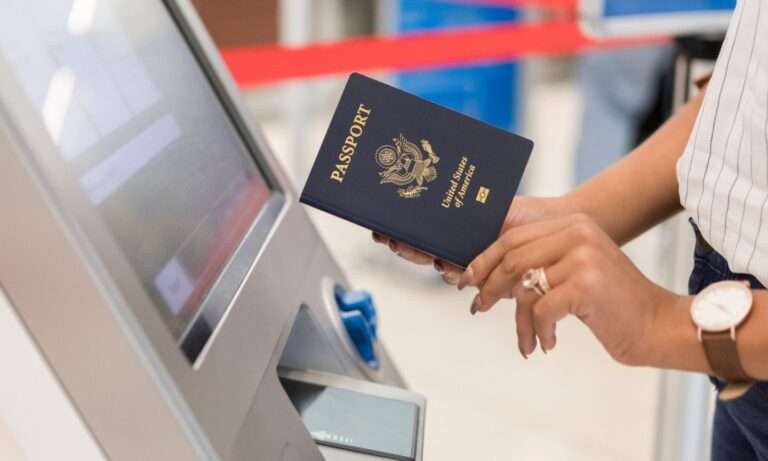Traveling outside the United States is something many people take for granted, but for those with a felony conviction, it can be a much more complex process. If you or someone you know is a convicted felon and you’re considering international travel, it’s essential to understand the legal landscape, potential restrictions, and how to navigate the challenges you might face. This comprehensive guide will walk you through everything you need to know about traveling abroad as a convicted felon, from obtaining a passport to understanding entry restrictions in various countries.
Understanding the Basics: Can Felons Travel Abroad?
The ability of a convicted felon to travel abroad hinges on several critical factors, including the nature of the crime, parole or probation status, passport eligibility, and the specific laws of the destination country. Here’s a closer look at these factors:
Type of Felony
- Severity and Nature of the Crime: Some felonies, especially those involving violent crimes, drug trafficking, or crimes against minors, can have more severe travel restrictions. For example, crimes related to terrorism, espionage, or child exploitation often result in severe limitations on international travel.
- Misdemeanors vs. Felonies: While misdemeanors may not heavily impact your travel ability, felonies are considered more severe and can lead to stricter regulations. However, not all felonies will prevent you from obtaining a passport or traveling internationally.
Parole or Probation Status
- Permission to Travel: If you are on parole or probation, traveling outside the United States is typically prohibited unless you obtain explicit permission from your parole officer or the court. This permission is not easy to come by and is usually granted only for compelling reasons, such as work or family emergencies.
- Risk of Violating Parole: Traveling without permission can result in serious legal consequences, including violation of parole, which could lead to additional penalties or even imprisonment.
Passport Restrictions
- Eligibility to Obtain a Passport: Generally, most convicted felons can apply for and receive a U.S. passport after serving their sentence and completing any parole or probation. However, there are significant exceptions:
- Drug Trafficking Convictions: If you were convicted of drug trafficking, particularly if you used your passport to commit the crime, you might be permanently ineligible for a passport.
- Unpaid Child Support: The U.S. Department of State may deny your passport application if you owe more than $2,500 in child support or have been restricted from leaving the country by the court.
- Federal Arrest or Subpoena: If you are currently under federal arrest, subpoena, or other forms of legal restriction, you will not be able to obtain a passport.
Country-Specific Laws
- Varying Entry Requirements: Each country has its own set of rules regarding the entry of individuals with a criminal record. Some countries are lenient and may allow entry after a certain period, while others have strict regulations that could prevent you from entering at all.
- Research is Key: It’s essential to research the entry requirements for the country you wish to visit. Some countries might allow you to enter with a visa or after applying for criminal rehabilitation, while others might deny entry outright.
Can a Felon Get a U.S. Passport?
For most felons, getting a U.S. passport is possible, but there are obstacles you may face depending on the specifics of your criminal record. Here’s what you need to know:
- Applying for a Passport: If your felony does not fall under the restricted categories mentioned above, you can apply for a passport like any other U.S. citizen. The process involves filling out the standard application form, providing proof of citizenship, and paying the application fee.
- Denied Applications: If your application is denied due to your criminal record, you will be notified of the reason, and you may have the opportunity to appeal the decision or resolve the issue that led to the denial.
- Expedited Passport Services: If you are eligible for a passport and need it quickly, consider using an expedited passport service. RushMyPassport offers expedited passport services that can significantly reduce the processing time, helping you get your passport as quickly as possible.
Countries That May Deny Entry to Felons
Having a U.S. passport does not guarantee entry into any country you wish to visit. Many countries conduct background checks and have strict entry requirements for individuals with criminal records. Here are some countries known for their strict policies:
Canada
- Strict Entry Policies: Canada is one of the strictest countries regarding admitting individuals with a criminal record. Even minor offenses like a DUI can result in being denied entry.
- Criminal Rehabilitation: Canada offers a process called “criminal rehabilitation,” which allows individuals with certain convictions to enter the country after a designated period has passed. The process involves applying for rehabilitation, proving you are of good character, and showing that you have been rehabilitated.
- Temporary Resident Permit: If you need to travel to Canada urgently and do not qualify for criminal rehabilitation, you may apply for a Temporary Resident Permit (TRP), which allows entry for a limited time.
United Kingdom
- Impact of Sentencing: The UK may deny entry to individuals with certain criminal convictions, particularly if the crime resulted in a prison sentence of more than 12 months.
- Visa Applications: If you have a criminal record, you may need to apply for a visa to enter the UK. The visa application process involves disclosing your criminal history and providing additional documentation to support your case.
Australia
- Character Test: Australia has a strict character test that can result in visa denial for anyone with a substantial criminal record. If you have been sentenced to more than 12 months in prison, you could be denied entry.
- Visa Requirements: If you have a criminal record, you will likely need to apply for a visa to enter Australia. The visa application process requires a detailed background check, and failure to disclose your criminal history can result in permanent bans.
Japan
- Entry Restrictions: Japan has stringent entry requirements and may deny entry to anyone with a criminal record, particularly for drug-related offenses.
- Visa Application Process: If you have a criminal record, you may need to apply for a visa before traveling to Japan. The process involves disclosing your criminal history and providing any necessary documentation.
New Zealand
- Criminal Record Restrictions: New Zealand may deny entry to individuals with a criminal record if they were sentenced to imprisonment for 5 years or more or were sentenced to imprisonment for 12 months or more within the last 10 years.
- Visa Application: If you have a criminal record, you will likely need to apply for a visa to enter New Zealand. The application process involves a background check and may require you to provide additional information about your criminal history.
Traveling on Probation or Parole
Traveling while on probation or parole adds another layer of complexity. Here’s what you need to know:
- Obtaining Permission: If you are on probation or parole, traveling outside the United States usually requires permission from your parole officer or the court. This permission is often granted only for specific, justifiable reasons, such as work, medical treatment, or family emergencies.
- Violation Risks: Attempting to travel without proper authorization can result in severe consequences, including being charged with a parole violation, which could lead to re-incarceration.
- Documenting Your Case: If you need to travel for an essential reason, it’s crucial to document your case thoroughly. Provide detailed reasons for your travel, including any supporting documents, and be prepared to explain why you are not a flight risk or danger to society.
Tips for Felons Planning to Travel Abroad
Successfully navigating international travel as a convicted felon requires careful planning and attention to detail. Here are some tips to help you prepare:
Check Passport Eligibility:
- Before planning any international travel, confirm that you are eligible to receive a U.S. passport. If you have any doubts, consult with a legal professional to ensure you meet the requirements.
Research Entry Requirements:
- Each country has its own rules regarding the entry of individuals with criminal records. Research the specific entry requirements for your destination country and understand whether you need a visa or any special permission to enter.
Apply for a Passport Early:
- If you are eligible for a passport, apply well in advance of your planned travel dates. Passport processing times can vary, and if you need to expedite the process, consider using a service like RushMyPassport to speed up the application.
Seek Legal Advice:
- If you’re uncertain about any aspect of your travel plans, seek advice from a legal professional. An attorney experienced in criminal law and international travel can help you navigate the complexities and ensure you comply with all legal requirements.
Prepare All Necessary Documentation:
- Gather all the necessary documentation you may need, such as court papers showing that you have completed your sentence, parole, or probation. Having these documents on hand can help avoid delays or issues at the border.
Be Honest About Your Record:
- When asked about your criminal record by immigration authorities, be honest. Lying about your history could result in being denied entry and potentially banned from entering that country in the future.
Understand Visa Requirements:
- If the country you plan to visit requires a visa for entry, make sure you understand the application process, including any background checks and documentation needed.
Stay Informed:
- Laws and regulations regarding entry for individuals with criminal records can change. Stay informed about the latest developments and ensure your travel plans are in line with current laws.
FAQs About Felons Traveling Abroad
Q: Can a felon travel to Mexico?
- A: Mexico generally allows entry to individuals with a felony conviction, but it depends on the nature of the crime. Those with serious offenses, such as drug trafficking or violent crimes, may face entry denial. It’s advisable to consult with Mexican immigration authorities or an attorney before traveling.
Q: Is it possible to get a passport with a felony?
- A: Yes, most felons can obtain a passport unless their crime involved drug trafficking or they are currently under legal restrictions, such as being on probation or parole without permission to travel.
Q: What happens if a felon is denied entry to a country?
- A: If denied entry, you will likely be detained briefly before being sent back to the United States. It’s crucial to research entry requirements beforehand to avoid this situation.
Q: Can a felon enter the European Union?
- A: The European Union does not have a unified policy regarding the entry of individuals with criminal records, so entry depends on the specific country you plan to visit. Some countries may allow entry, while others might require a visa or deny entry based on your record.
Q: Do I need to disclose my criminal record when traveling?
- A: Some countries require you to disclose your criminal record when applying for a visa or entering the country. It’s best to be honest about your record, as failure to disclose it can lead to severe consequences.
Q: How long does it take to apply for criminal rehabilitation in Canada?
- A: The criminal rehabilitation process in Canada can take several months to over a year, depending on your case’s complexity and the backlog at Canadian immigration.
Q: Can a felon travel on a cruise?
- A: Yes, most felons can travel on a cruise, especially if the cruise departs from and returns to a U.S. port. However, it’s essential to check the entry requirements of each country the cruise will visit.
Q: What should I do if I’m on probation and need to travel?
- A: If you’re on probation, you need to get explicit permission from your probation officer or the court before planning any travel outside the United States.
Q: Can a felon work abroad?
- A: Working abroad with a felony conviction can be challenging, as many countries have strict entry and work visa requirements. You will likely need to disclose your criminal record and may face additional hurdles in obtaining a work visa.
Q: Are there any travel agencies that specialize in helping felons travel abroad?
- A: While there are no specific travel agencies for felons, some legal services specialize in helping individuals with criminal records navigate international travel. Consulting with an attorney experienced in this area can be beneficial.
Q: Can a felon obtain a visa to travel?
- A: Whether a felon can obtain a visa depends on the destination country’s laws and the nature of the felony. Some countries may deny a visa based on the criminal record, while others may allow entry with certain conditions.
Q: What should I do if I’m denied entry to a country?
- A: If denied entry, cooperate with immigration authorities and understand the reason for denial. You may need to return to the United States and consult with an attorney to address the issue.
Q: Can a felon be deported from another country?
- A: Yes, if you violate the entry requirements or laws of a foreign country, you may be deported. This can also impact your ability to travel to other countries in the future.
Q: How can I find out if I’m eligible for a passport?
- A: Check the U.S. Department of State’s website or consult with a legal professional to determine your passport eligibility. If you need a passport urgently, consider using expedited services like RushMyPassport to get your passport as quickly as possible.
Final Thoughts on Traveling Abroad as a Convicted Felon
Navigating international travel as a convicted felon can indeed be complex, but it is not impossible. With careful planning, a clear understanding of legal requirements, and the right resources, you can successfully manage the process and enjoy travel opportunities abroad.
- Thorough Preparation: Start by understanding the travel requirements and restrictions of your destination country. Check visa requirements, entry laws, and any potential barriers based on your criminal record. Being well-informed helps prevent surprises and ensures you’re prepared for any potential issues.
- Address Legal Hurdles: If you’re on probation or parole, obtaining the necessary permissions to travel is crucial. Work closely with your parole officer or legal advisor to secure any required approvals and avoid potential violations.
- Secure Your Passport: For many felons, obtaining a passport is a straightforward process, but complications can arise depending on your criminal history. If you’re eligible but need a passport urgently, services like RushMyPassport can expedite the process, allowing you to focus on your travel plans without delays.
- Be Transparent and Honest: Always be upfront about your criminal history when required. Transparency can help avoid complications at border controls and immigration checks.
- Seek Professional Advice: If you’re uncertain about your situation or the regulations of your destination, consulting with a legal professional who specializes in travel and criminal law can provide valuable guidance and help navigate the complexities of international travel.
- Stay Flexible and Prepared: International travel as a felon may involve unexpected challenges, such as visa denials or entry restrictions. Staying flexible and prepared for any scenario will help you manage any issues that arise more effectively.
Traveling abroad with a felony conviction requires careful planning and a good understanding of the rules and regulations that apply. By following these guidelines and preparing thoroughly, you can improve your chances of having a successful and enjoyable international experience.
Feel free to use the RushMyPassport link if you need to expedite your passport application and get started on your travel plans with greater peace of mind.
Safe Travels!






